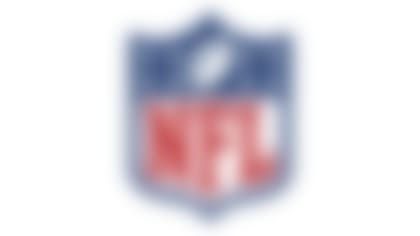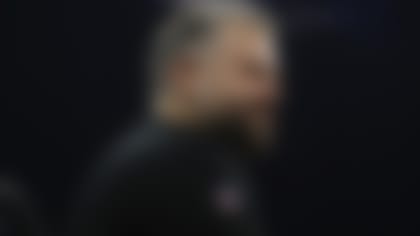A court's decision to grant Ezekiel Elliott an injunction to put his six-game suspension means the NFL has Tom Brady redux on its hands -- playing a football season with one of its brightest stars fighting it in federal court while continuing to play in games, with the promise of more court appearances and pointed questions about how the league conducts investigations and imposes discipline on players still to come.
Elliott now almost certainly will be allowed to play the entire 2017 season while his case winds its way through the court. To be clear, none of this is about Elliott's guilt or innocence on the underlying question of whether he abused his former girlfriend. That issue was not before the court, just as deflated footballs were never the issue before the judges in the Brady case. This, as U.S. District Court Judge Amos Mazzant III stated, was simply a question of whether Elliott had received a fair arbitration hearing when he appealed the suspension.
The answer, Mazzant determined, was no, and that will likely further dent whatever trust there might be left between players and the league office.
"The NFL's actions demonstrate that from the very beginning of the decision-making process, a cloud of fundamental unfairness followed Elliott," the judge wrote. "Unfortunately, this cloud followed Elliott into the arbitration proceedings. The arbitration record shows that the NFL, at the very least, turned a blind eye to [investigator Kia] Roberts's dissenting opinion. This entire set of circumstances was put in front of Henderson. It is in this light the court views [arbitrator] Harold Henderson's decisions to exclude [Elliott's ex-girlfriend Tiffany] Thompson and Commissioner [Roger] Goodell as necessary witnesses, as gross errors resulting in a fundamentally unfair hearing."
The league issued a statement indicating that it would continue to fight Elliott in court.
"We strongly believe that the investigation and evidence supported the commissioner's decision and that the process was meticulous and fair throughout," a league spokesman said in a statement. "We will review the decision in greater detail and discuss next steps with counsel, both in the district court and federal court of appeals."
Among the points the judge made was that the decision to exclude conclusions by Roberts – who is the only league official to have interviewed Thompson, the woman who made the allegations against Elliott, and who developed her own opinions about Thompson's veracity -- amounted to a breach of the collective bargaining agreement.
"The allegations that the NFL withheld evidence from the NFLPA and Elliott amount to a repudiation of the required procedures specified in the collective bargaining agreement," the judge wrote. "The CBA requires that the "NFLPA and NFL have the right to attend all hearings provided for in [Article 46] and to present, by testimony or otherwise, any evidence relevant to the hearing."
While the NFL maintains that Goodell was fully informed of Roberts' concerns about Thompson before he made the suspension decision, Mazzant went further, saying Henderson's decisions about what would be allowed at the appeal hearing was a further breach of the CBA. And that NFL had sought to assure that Elliott and the NFLPA never found out about Roberts' opinions.
"Since Henderson barred access to the investigators' notes, Thompson's cross-examination, and the examination of commissioner Goodell, and each was of utmost importance and extremely relevant to the hearing, Henderson breached the CBA," Mazzant wrote.
This decision is just the beginning. As in the Brady case, the league and union will now do battle in court. Brady won a victory at the district level, only to be reversed on appeal. When he decided not to try to take his case to the Supreme Court, he had to serve his suspension. But from the time the deflated footballs were discovered, through the time the union and league argued about the powers the commissioner has in the collective bargaining agreement and whether the courts can interfere with them, through Brady's suspension took a year and a half.
Don't expect this one to wrap up any more quickly. Discipline power under the commissioner has been a source of friction for several years and figures to be a contentious negotiating point in the next labor contract negotiations. The reason the fighting goes on is because the courts have ultimately sided with the league. When Brady lost at the Second Circuit Court of Appeals, it only strengthened the commissioner's power, despite the bruising battle that led up to it.
It is worth remembering that during the lowest moment of the Ray Rice fiasco, there were some concerned owners who wondered aloud if the commissioner's office should have so much discipline power, if it wouldn't be better for everyone -- including Goodell -- if a neutral arbitrator was used to determine discipline, to extricate the commissioner from often difficult, controversial decisions. But the most candid owners admitted that that would be a big "give" by the owners, meaning they would expect something big in return from players to get discipline out of the commissioner's office. Brady's loss in court meant changing the discipline structure would be an even greater give by the owners.
And it is also worth remembering that the last time the CBA was negotiated, players ceded the issue of commissioner power in discipline quickly -- so much so, that it surprised some owners. But one player at the time explained that the personal conduct policy affects so few players each season that it would be difficult to convince 2,000 players to give up millions of dollars to protect the rights of a few, particularly because some of them might have been involved in disturbing acts.
That is why the league will fight Elliott with the same gusto, and why the union will fight, too. This is the third stinging loss for the NFL in district court. They lost to Brady and also to Adrian Peterson, following his own involvement domestic violence case. The NFL then prevailed at the appeals court level in the Brady and Peterson cases.
"Commissioner discipline will continue to be a distraction from our game for one reason: because NFL owners have refused to collectively bargain a fair and transparent process that exists in other sports," the NFLPA said in a statement after the decision. "The 'imposed' system remains problematic for players and the game, but as the honest and honorable testimony of a few NFL employees recently revealed, it also demonstrates the continued lack of integrity within their own league office."
One day after Deflategate finally came to a close with Goodell's return to Foxborough for the season opener, the NFL's next fraught confrontation emerges.












